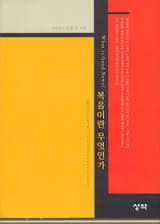
Workers of Lawlessness (불법을 행하는 자들)
[Ruminations after reading “What is the Gospel” by Hong-Chun Kim.]
Here are Jesus’ concluding words in His sermon on the mount (emphasis mine):
Not everyone who says to me, ‘Lord, Lord,’ will enter the kingdom of heaven, but the one who does the will of my Father who is in heaven. On that day many will say to me, ‘Lord, Lord, did we not prophesy in your name, and cast out demons in your name, and do many mighty works in your name?’ And then will I declare to them, ‘I never knew you; depart from me, you workers of lawlessness.’ (Matthew 7:21–23)
The condition of entering the Kingdom is clear — Jesus’ Father must acknowledge the person as the one who does His will. The will of the Father is revealed in (but not restricted to) the Law, which commands us to trust the Messiah: “The Lord your God will raise up for you a prophet like me from among you, from your brothers—it is to him you shall listen.” (Deuteronomy 18:15). It is indeed God’s will that “you believe in him whom he has sent” (John 6:29).
But who on earth can claim himself/herself as the one who has done everything according to Jesus’ Father’s will? None but one, Jesus Christ, who was testified by God that “This is my beloved Son, with whom I am well pleased” (Matthew 3:17).
Therefore there is only one way to enter the Kingdom, and that is by the gracious imputation of Jesus’ righteousness onto us.
The people described in the quoted passage above, however, are relying on something else than Jesus; they are bringing up what they have done in their lives. But Jesus’ assessment is that they are workers of lawlessness.
Their lawlessness can be grouped chiefly as threefold:
- They are asking to weigh certain deeds they have done. A just and fair judge will then examine all of their works. The final judgement would be “lawlessness”, which can clearly be foreseen from the Word of God: “We have all become like one who is unclean, and all our righteous deeds are like a polluted garment. We all fade like a leaf, and our iniquities, like the wind, take us away.” (Isaiah 64:6) “Everyone who makes a practice of sinning also practices lawlessness; sin is lawlessness.” (1 John 3:4) “Whoever keeps the whole law but fails in one point has become accountable for all of it.” (James 2:10) “All who rely on works of the law are under a curse; for it is written, `Cursed be everyone who does not abide by all things written in the Book of the Law, and do them.’” (Galatians 3:10)
- If they were truly servants of the Lord and did those things in Lord’s name, then that means they have received everything from the Lord and bore fruit by Lord’s providence. Claiming such fruit as their own work is lawlessness. They have no ground to claim those fruit as their own. “So you also, when you have done all that you were commanded, say, ‘We are unworthy servants; we have only done what was our duty.’” (Luke 17:10)
- The only righteousness man is Jesus Christ, the Son of God; and the only way to be saved from the wrath of God unto all ungodliness is by God’s gracious imputation of the righteousness of Christ. “By what kind of law? By a law of works? No, but by the law of faith.” (Romans 3:27) But the people described in the quoted text are holding on to, not Jesus, but their works, as if that was the way to enter the Kingdom; they are relying on their own thoughts or theory of salvation even till the last moment, not obeying the Law of Faith established by God; and this is lawlessness.
And this is the testimony, that God gave us eternal life, and this life is in his Son. Whoever has the Son has life; whoever does not have the Son of God does not have life. (1 John 5:11–12)




2 Comments
Will Barham
You hit the proverbial nail on the head. Our righteousness rests in Christ alone. He earned it on our behalf through His active and passive obedience. Blessings to you brother Kim!
hun
Amen, blessings to you too ^_^